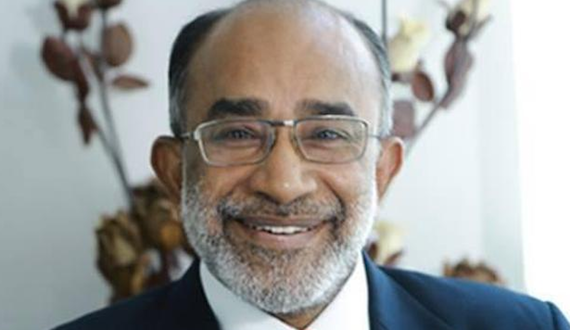Political News
Modi Govt. plans to appoint central Administrator for Chandigarh
August 17, 2016 | By Parmjeet Singh
Chandigarh: In an apparently controversial move, the Narendra Modi led central government of India today decided to appoint a ‘separate’ Administrator for the Union territory of Chandigarh. K J Alphons, 63, a retired bureaucrat from Kerala and a BJP executive committee member, is reportedly picked up to become the administrator of Chandigarh. The move would reversed a 32-year-old practice of the Punjab governor holding the additional charge of the Chandigarh.
As per media reports, Alphons, a native of Manimala in Kottayam district in Kerala, said, “[t]he prime minister found me administratively compatible for the post of administrator.”

Former bureaucrat from Kerala and BJP executive committee member K J Alphons
Notably, the Chandigarh was made the joint capital of Punjab and Haryana after the ‘re-organization’ of Punjab in 1966, but it was kept under direct control of the Centre.
The practice of the Punjab governor also holding the charge of the Chandigarh administrator was put in place in 1984. Punjab was then under President’s rule. Before that, Chandigarh was administered by a chief commissioner, a serving bureaucrat, who reported to the Union government.
The demand of handing over Chandigarh to Punjab has been in place since 1996 and it was one of the main demands during Akali morcha (Dharam Youdh Morcha) of early 1980s.
The move was not expected the Punjab is heading for assembly elections and the Chandigarh administration is even otherwise under the control of the Central government that appoints state governors. At present there is no separate governor for Punjab and governor of Haryana, Kaptan Singh Solanki is holding additional charge of governor of Punjab. The move is more symbolic than practical and it seems that Modi government is trying to sent out a message against Punjab’s claim over Chandigarh.
To Get Sikh Siyasat News Alerts via WhatsApp:
(1) Save Our WhatsApp Number 0091-855-606-7689 to your phone contacts; and
(2) Send us Your Name via WhatsApp. Click Here to Send WhatsApp Message Now.
Sikh Siyasat is on Telegram Now. Subscribe to our Telegram Channel
Related Topics: BJP, Chandigarh, Indian State, Narendra Modi, Punjab Politics, Shiromani Akali Dal (Badal)




